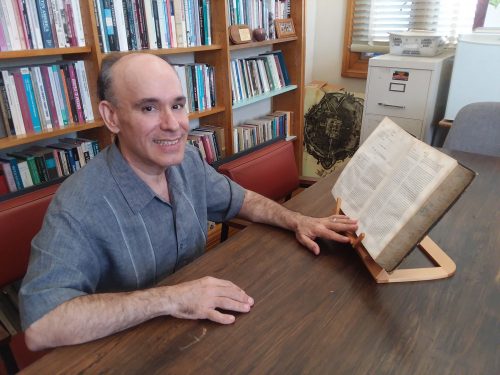

Water is one of the most valuable and contested natural resources in the American West. Communities have been fighting for access to scarce water sources for quite some time. How are water rights determined in areas that were once part of Spain and Mexico? Why are these old laws, customs, and usages still in effect and still practiced throughout the Southwest? Disputes over natural resources require navigating both thorny historical and legal issues. Spanish colonialism and U.S. expansionism have played defining roles in shaping debates over access and control of natural resources, from water to land to minerals. Join us as historian Dr. Michael Brescia unpacks the complex historical and contemporary issues regarding water rights and policy with multiple historical threads. This program is hosted by Arizona Humanities and is part of the Climate Conversations series.
[gdlr_button href=”http://events.r20.constantcontact.com/register/event?oeidk=a07eijmmo16b3bd3d0b&llr=4prallcab” target=”_self” size=”medium” background=”#000000″ color=”#ae4527“]Register Here to Attend Virtually[/gdlr_button]
ABOUT THE SPEAKER:
Michael Brescia is Curator of Ethnohistory at the Arizona State Museum and affiliated Professor of History and Law at the University of Arizona. His research and numerous publications focus on the history of the transnational Southwest and the living legacies of Spanish and Mexican natural resource law and water rights. As a scholar working at the intersection of history, law, and the environment, he has served as an expert witness in water rights cases in Arizona and New Mexico. Dr. Brescia is an award-winning teacher, advocate for the public humanities, and the 2021 recipient of the Dan Shilling Humanities Public Scholar Award from Arizona Humanities.